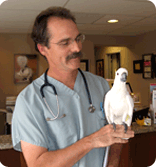Juniper poisoning question

My Question: Is Juniper wood toxic to parrots? I read in Gallerstein’s book that only the needles, berries, and stems were toxic.
Dr. Speer, I wrote asking about the Juniper tree and its toxicity to parrots. Below are science articles regarding the Juniper and native birds that rely on the Juniper. If it is not toxic to so many native birds, why do so many sites state that it is toxic to parrots?
http://www.pwrc.usgs.gov/pif/pubs/PJ manual Nov 08 low-res.pdf
bna.birds.cornell.edu/bna/species/485b
ir.library.oregonstate.edu/dspace/handle/1957/8971
elibrary.unm.edu/sora/wb/v15n02/p0085-p0090.pdf
mojavedesert.net/plants/shrubs/juniper.html
newmexicobirds.blogspot.com/2009/02/gallant-in-gray-townsends-solitaire.html

You have done a good job, taking the time to challenge some of those simple statements. Why do these types of comments about toxic risk to parrots exist out there? In part, by taking known fact from some species and correlating it to others where it is not known to be a problem or even where there is no problem; in part “just to be safe”, and part simple error. This is one of the inherent risks of taking some pieces of information, without verification - sometimes, we end up really out and removed from reality. The catch here: We do not know what parrot species will do that are non-native to areas where Juniper grows, or if there could be a problem in those species..
Here is an excerpt from a summary discussion about Juniper poisoning:
Juniper, Juniperus sp: There are many species used commonly for landscaping. They are all shapes, sizes and colors and are widely distributed throughout North America. The fleshy seed cones are used as a food source for birds, rodents, deer and humans. Some of the toxic principles are diterpene acids, believed to be responsible for abortions in cattle and sheep; terpine-4-ol, responsible for diuretic effects; and sabinyl acetate which causes fetal malformations that are well documented in rats. The other clinical signs after large amounts of Juniperus are eaten include premature births, stillborns, small or weak newborns in cattle and sheep with the dam also being ill. It is not recommended that pregnant animals have access to these shrubs.
The toxic principle seems to be oriented towards abortions or fetal malformations - an issue that kind of seems to be centered about placental mammals - not birds who do not do that pregnancy thing.

































